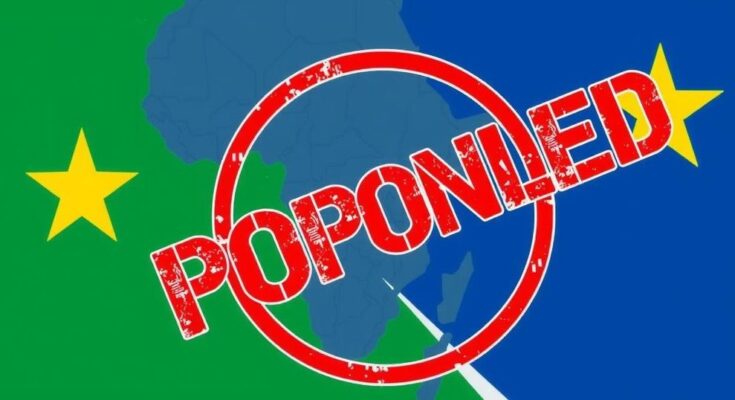South Sudan has postponed its first general elections originally scheduled for next month, extending the transition period until February 2027, prompting concerns from UN officials. Nicholas Haysom emphasized the need for immediate action by the country’s leaders to fulfill the terms of the Revitalized Peace Agreement to address the frustrations of citizens amidst ongoing humanitarian crises and internal conflict.
The recent announcement from South Sudan that the transition period has been extended until February 2027 has raised significant concerns regarding the future of the country’s democratic processes. During his briefing to the Security Council, UN Special Representative Nicholas Haysom emphasized that postponing long-awaited elections until December 2026 the latest manifestation of political stagnation in the country. The call from the UN for active measures towards implementing the peace agreement underscores the urgency for South Sudan’s leadership to address the frustrations of a weary populace. Haysom expressed that such delays are deeply troubling, given the public sentiment regarding ongoing political inertia inhibiting progress towards a democratic transition. He reiterated the importance of seizing the opportunity provided by this extension to actualize commitments made under the Revitalized Peace Agreement, suggesting that a collaborative approach is critical to overcoming political divides. Despite promising frameworks in place for peace, actual implementation remains hindered by competing national interests. The humanitarian situation remains dire, with violence and flooding compounding the challenges faced by the population. Haysom also highlighted the need for collective action from international partners to support urgent tasks such as civic education and voter registration. The role of UNMISS in facilitating this process is essential, as it seeks to empower South Sudanese citizens in their nation-building efforts. As the deadline approaches, the significance of addressing achievable benchmarks, including the establishment of the Necessary Unified Forces (NUF) and fostering civic engagement, cannot be overstated. The hope remains that meaningful progress can still be made, ensuring that South Sudan’s forthcoming elections reflect the will of its people and support their aspirations for peace and democracy.
South Sudan, the world’s youngest nation, achieved independence from Sudan in 2011, yet its journey toward democratic governance has been fraught with challenges, particularly following a civil war that erupted in 2013 between factions loyal to President Salva Kiir and Vice President Riek Machar. Following a peace agreement in 2018, there were hopes for political stability and the initiation of democratic processes; however, delays and stagnation have characterized the landscape. The recent decision to postpone the elections, initially set for next month, has been met with frustration from the public, who are increasingly disillusioned by the government’s inability to follow through on commitments towards democratic transition. In response, the UN has urged South Sudanese leaders to prioritize accountability and action to fulfill the terms of the peace agreement and contend with the myriad humanitarian challenges the nation faces, including recurring violence and economic instability.
In summary, the delay in the elections in South Sudan is a significant setback in the pursuit of democratic governance and has deepened the frustrations of the populace. As articulated by Nicholas Haysom, the path forward demands collaborative efforts from political leaders, civil society, and the international community to meet established benchmarks and fulfill the commitments of the Revitalized Peace Agreement. The resolution of current conflicts and humanitarian challenges is imperative to pave the way for a successful transition towards democracy. The urgency is evident as South Sudan stands on the precipice of either continued stagnation or a renewed commitment to peace and democratic principles.
Original Source: news.un.org




